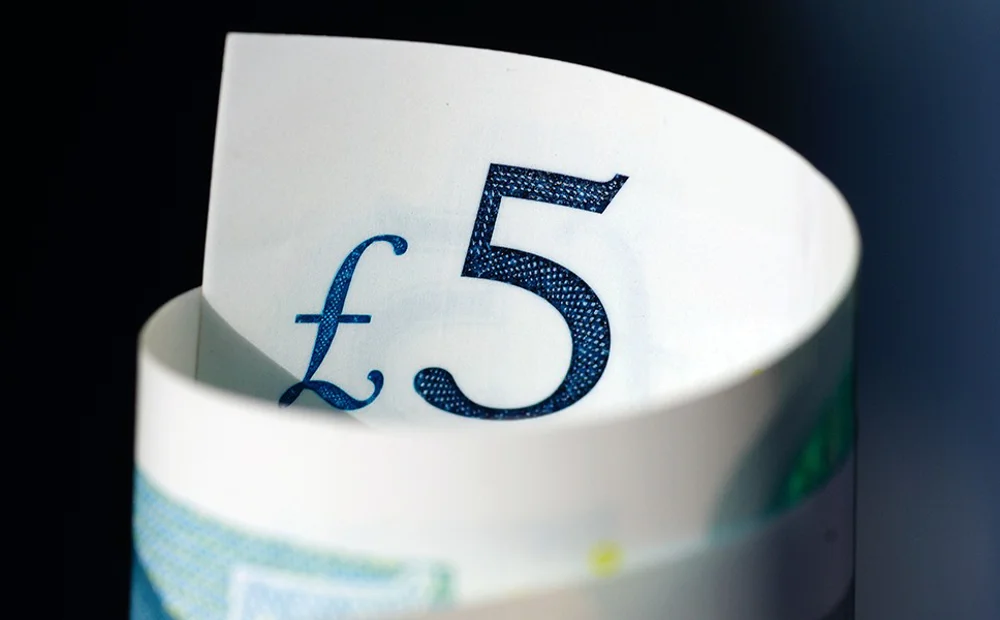Cost of Living Crisis

The cost of living crisis has hit almost every household in the UK, to varying extents. For some, it has tipped an already precarious situation into what may feel like a state of no return, with many faced with the difficult choice between heating and eating. Others are left balking at the prices of everyday essentials, though still able to afford them - for now.
Whatever the individual situation, there’s no doubt that our monthly outgoings have seen a noticeable increase since the start of the year. In light of this, we ask what the government should do to help provide more financial security for people across the UK?
It’s not something money management can fix
Recently, Martin Lewis told the BBC that the UK is facing a real absolute poverty issue saying that this is the worst financial situation he has seen since 2000. He went on to comment, “I am virtually out of tools to help people now. It’s not something money management can fix, it’s not something for those on the lowest incomes telling them to cut their belts will work. We need political intervention.”
It sounds, and can feel, like a hopeless situation; but mounting pressure on UK ministers could – and should – lead to extra measures to help the general public tackle the out-of-control rise in the cost of living. Earlier in March, more than 50 charities warned the government that the consequences of below-inflation benefit pay rises would be “unthinkable” for households that already struggle to cover essential living costs.
At the time, the government was reluctant to commit to extra spending; but amid growing concerns, it’s clear that this crisis cannot be ignored. In fact, former Prime Minister, Gordon Brown, suggested that the cost of living crisis has now replaced the pandemic as the biggest source of worry in the minds of the general public.
In addition, the current situation is considered the biggest income squeeze in almost 50 years. And while many struggle under the weight of 7.5% inflation, some city analysts predict that inflation could rise to 10% in the coming months.
So, while the Conservative government remains hesitant to fully commit to increased state spending, it’s clear that they should be left with no alternative. Cutting tax, capping extortionate energy prices, and absorbing VAT costs across essential industries could all help the public afford the most basic living costs.
How the government is reacting
On Wednesday 23rd March 2022, Rishi Sunak, the Chancellor of the Exchequer announced his Spring Statement which focused on ways to ease the soaring costs. However, many would argue that even with these announcements, the government is not doing enough to address what is an absolute crisis for so many households.
The biggest change was to national insurance, as the income threshold, at which people start making payments, will rise from £9,880 to £12,570, coming into effect from July. At the same time of course, the government is raising national insurance contributions by 1.25% to help fund health and social care. The net effect of the two changes is that those earning under £36,000 will pay less, whereas those earning more will pay more. Though realistically, for those who will make a saving, this will be marginal at best in lightening the burden of the cost of living crisis.
It was announced that fuel duty would be cut by 5p per litre for the next 12 months, however, this is not enough to offset other rising costs across the country. Motoring company RAC said that the cut had taken prices "back to where they were just over a week ago".
Sunak also announced the removal of VAT on homeowners installing energy efficiency materials like insulation and solar panels. This may lead to an increase in green home improvements, which can help to lower both energy emissions and costs; but, for those who are struggling to pay their energy bills currently, this news won’t be of much use. The government granted another £500 million to local authorities as part of the Household Support Fund to help the most vulnerable households face the increase in living costs. It remains to be seen how this will look in practice and if it will genuinely make a difference to those who really need it.
The basic rate of income tax is also expected to fall from 20p to 19p in the pound in 2024, which is said to be worth an average of £175 a year to 30 million people. Cynics may say this is a way of attempting to win favour with a proportion of voters ahead of the next general election, but by this time, it may be all too late for both the government and the lowest earners in society.
Providing economic help
Ultimately, the government has taken some minor steps to address the cost of living crisis, however, for many this won’t inspire confidence that their financial situation is likely to improve, particularly people in already vulnerable positions such as those claiming universal credit, those with disabilities and pensioners. Those who don’t drive, those who don’t pay national insurance anyway and families on lower incomes have all been left in the most precarious of positions.
Whether the government will react further to the outcry building over the past few weeks or whether it is content that absolute poverty in our country rises to levels that haven’t been seen in generations remains to be seen, however, for now, it paints a bleak picture for millions across the country.
One option Sunak didn’t take was to review benefits and pensions, many of which are uprated based on inflation each year. The rate of inflation for increases in April is set the previous September. Last September’s inflation was much lower than the current rate, and this September’s (affecting increases in April 2023) is likely to be much higher. The simplest way to help people now would be to bring forward some of that future increase from next year to this, putting money into the pockets of those who desperately need it.
Choosing to prioritise drivers with a high cost cut in fuel duty that makes only a minor difference to the cost of fuel rather than helping those most in need could be seen by many as a clear indication of a complete disregard for those who are the least well-off, as well as being economically illiterate as it means those with less fall further into trouble, costing us, as a society, even more to fix problems later.
We understand that this is a difficult time for many people across the UK and the recent news may be hard to comprehend. Here at Great Western Credit Union, we believe that by coming together, we can improve the financial wellbeing of our communities, including local people and businesses.
Through our services, we can help members to develop good saving habits through saving plans, as well as giving them access to low-cost, ethical loans so that they feel more financially secure.
If you would like to contact a member of our team, please email us at info@gwcu.org.uk.
